The high-octane encounter between Manchester City and Arsenal turned even more dramatic post-final whistle when Erling Haaland, Manchester City's star striker, approached Arsenal's manager Mikel Arteta with a message that sparked controversy. The match, which ended in a gripping 2-2 draw at the Etihad Stadium on September 23, 2024, witnessed post-match tensions boil over, adding another chapter to the heated rivalry between the two teams.
Post-Match Drama: 'Stay Humble' Sparks Conflict
The incident unfolded during the customary post-match handshakes. Haaland, with a composed demeanor, patted Arteta on the back and advised him to ‘stay humble.’ Repeating the message, Haaland said, ‘stay humble, eh, stay humble.’ This remark prompted Arteta to turn on his heel to face Haaland but ultimately, he chose to walk away rather than escalate the situation.
However, matters didn’t end there. Arsenal's forward Gabriel Jesus, who overheard Haaland’s comment, took issue with it. The Brazilian forward approached Haaland, confronting him with, ‘come, come why you saying, you talking.’ The tension between the men was palpable as Haaland responded by pushing Jesus away. The situation threatened to spiral out of control when Jack Grealish stepped in to separate the pair, diffusing the immediate conflict.
Match Events that Fuelled the Fire
The seeds for the heated post-match exchanges were sown during the intense 90 minutes on the pitch. Notably, Erling Haaland’s opening goal was his landmark 100th goal for Manchester City. Later in the match, during a dramatic sequence following John Stones’ equalizer in the 98th minute, Haaland picked the ball out of the net and provocatively bounced it off the back of Arsenal defender Gabriel’s head as he ran off to celebrate with his teammates.
This incident was reflective of the broader contentious nature of the game. Just before half-time, Leandro Trossard received a second yellow card, reducing Arsenal to ten men. This decision forced Arsenal to adopt a more defensive stance in the second half, which Manchester City's players openly criticized. Kyle Walker and John Stones condemned Arsenal’s defensive tactics, branding them as ‘dark arts’ and ‘dirty.’
City Players' Reactions: More Digs and Mockery
Adding fuel to the fire, Manchester City's Bernardo Silva did not miss the opportunity to taunt Arsenal players about their lack of silverware. Silva was seen making a ‘0’ gesture with his thumb and forefinger directed at defender Gabriel, mocking Arsenal’s trophy cabinet in comparison to City’s recent successes.
In his post-match interview, Silva elaborated on the unique intensity of Manchester City's rivalry with Arsenal compared to their encounters with Liverpool. Silva pointed out Liverpool’s Premier League and Champions League triumphs, emphasizing that the Reds' achievements add a different level of intensity to their fixtures against City. This implied that Arsenal’s relative lack of trophies lessened the significance of their rivalry in his eyes.
The Aftermath: Reflecting on the Message
The 'stay humble' comment from Haaland, coupled with the confrontational exchanges during and after the match, highlights a growing animosity between Manchester City and Arsenal. This rivalry seems to be not just about the competition on the pitch but also about the mental games and provocations that extend beyond the final whistle.
For Haaland, whose competitive spirit is well-documented, this incident underscores his inclination to play psychological games. To many, it illuminates the mindsets within both camps—Arsenal striving to establish themselves firmly among the elite, and Manchester City aiming to maintain their dominant position and perhaps remind others of their place in the pecking order.
As for Arteta, walking away was seen as a refusal to engage in a public sparring match, potentially saving the drama for another day but certainly not diminishing the lingering tension.
Football, as much as it is a physical game, is also played in the mind. The Haaland-Arteta incident, witnessed by millions, adds another layer to an evolving narrative that football aficionados will watch keenly. This isn't just about who scores but also about the mental battles being fought in the backdrop of the world's most popular sport.

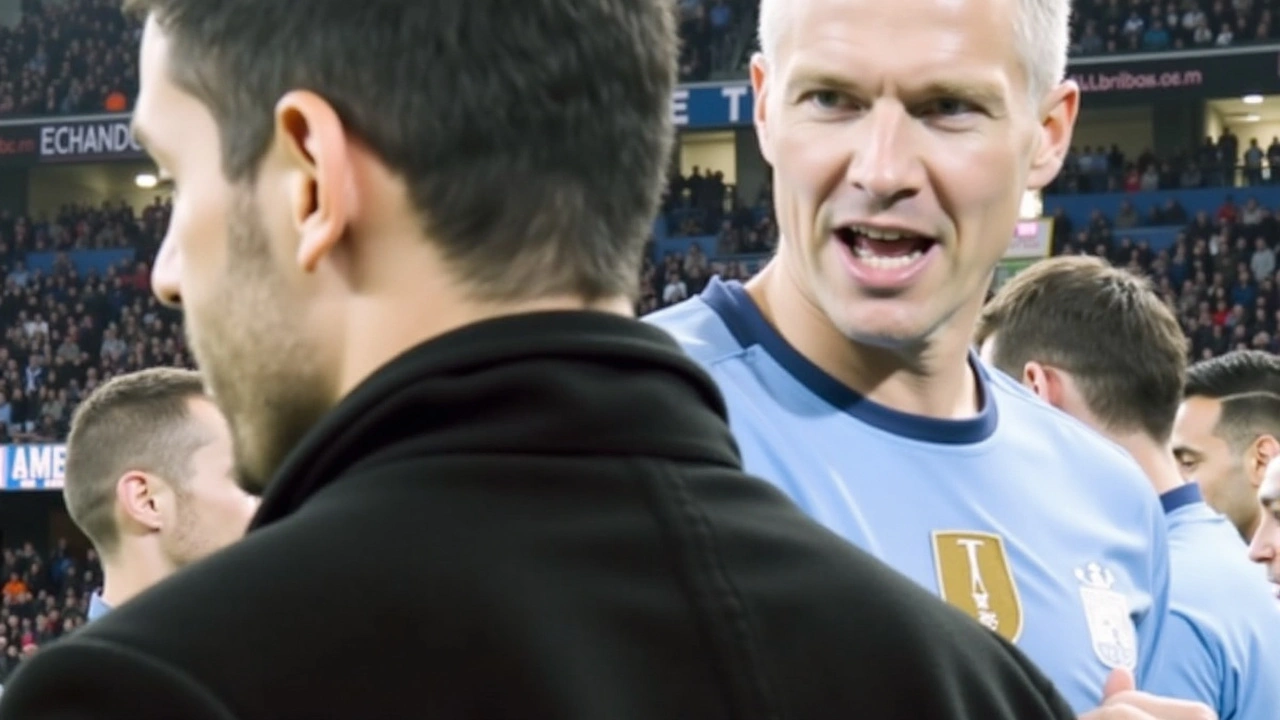
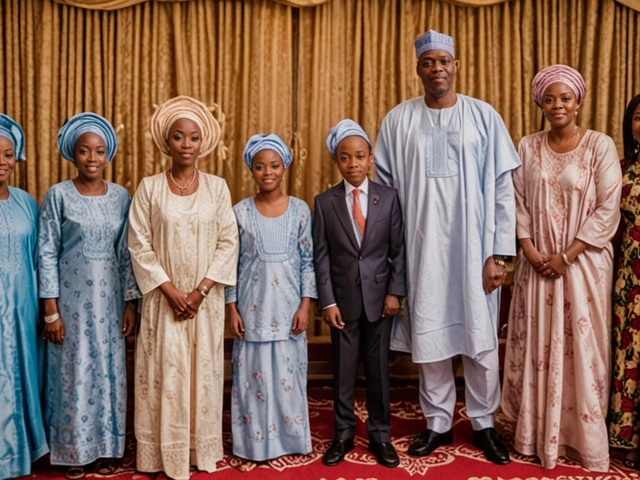
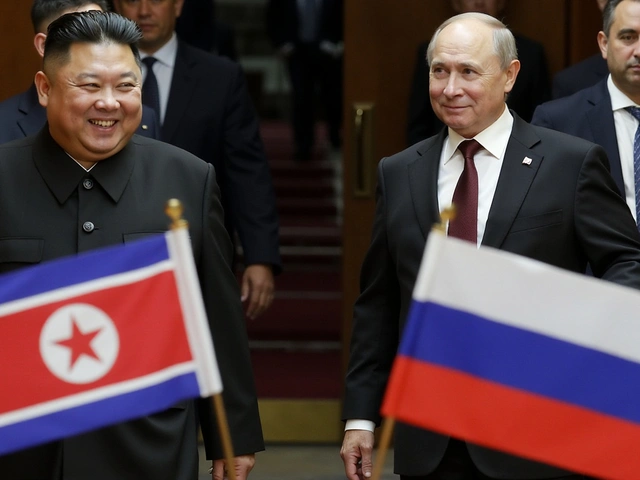
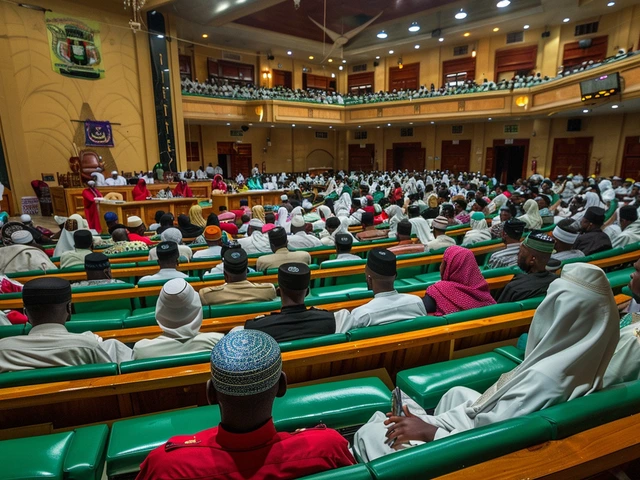

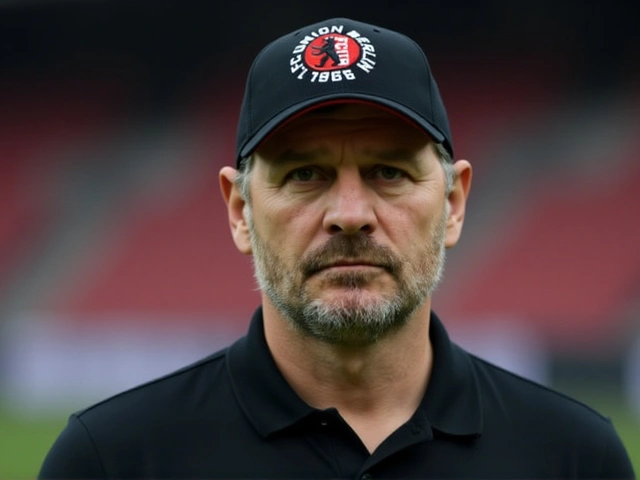
Mohit Singh
Haaland walking up to Arteta like he's the king of the world is absolutely disgusting. That "stay humble" line was just a thinly‑veiled jab, and the way he shoved Jesus aside felt like a bully on a playground. The whole saga reeks of disrespect and shows that some players still think they own the league.
Damian Liszkiewicz
Wow, what a whirlwind of emotions! 🤯 It’s fascinating how a simple phrase can ignite such a firestorm on the pitch. While I get the competitive edge, maybe a dash of humility goes both ways? After all, respect is a two‑way street. 🙏
Angela Arribas
First off, "stay humble" should have been capitalised as a proper noun if you’re quoting him, and the article missed the Oxford comma in the list of players. Also, it’s ethically questionable to glorify aggression on the field – we should be promoting sportsmanship, not confrontation. (¬‿¬)
Sienna Ficken
Oh, sure, Haaland’s “stay humble” is the epitome of poetic brilliance – right after Shakespeare wrote “to be or not to be” on a match‑day handshake. If sarcasm had a jersey number, it’d be 99, because that’s how many times this drama rewrote the script.
Zac Death
Reading through the fallout from that post‑match encounter, I can’t help but reflect on the broader implications for both clubs. It’s not just a matter of two individuals trading barbs; it’s a symptom of a deeper competitive culture that thrives on psychological warfare. When Haaland approached Arteta with that admonition, it was less about genuine advice and more about establishing dominance off the pitch. The same vibe echoed when Gabriel Jesus confronted Haaland – a smaller spark that could have ignited a larger blaze. Moreover, the physical push that followed shows how thin the line between controlled aggression and outright hostility can be. The involvement of Jack Grealish as a de‑escalator demonstrates the importance of mediators in high‑tension moments, reminding us that leadership extends beyond tactical decisions. The match itself, with its 2‑2 finish, already highlighted the fine margins in elite football, and the post‑match drama only amplified those edges. The tactical decisions, such as Trossard’s second yellow, forced Arsenal into a defensive posture that seemed to invite criticism from the City side. Yet, criticism is a double‑edged sword: it can motivate a team or undermine it, depending on the internal narrative. Players like Bernardo Silva, with his overt mockery, contribute to a narrative where mental games are as pivotal as physical skill. From a coaching perspective, these incidents serve as teachable moments about emotional regulation and professionalism under pressure. In the long run, the rivalry will likely intensify, and future encounters may be scrutinized not only for goals but also for the psychological strategies employed. Ultimately, while the “stay humble” remark may appear petty, it underscores a broader theme: in modern football, the mind games are often just as decisive as the final whistle.
Lizzie Fournier
Everyone, let’s just chill and remember it’s a game.
JAN SAE
What a spectacle, really, the tension, the gestures, the post‑match drama, it’s all part of the beautiful chaos, isn’t it?; the players, the managers, the fans-each acting on instinct, on emotion, on the relentless drive for victory, and yet, we see a pattern emerge, a pattern of provocation, a pattern that speaks volumes about modern football culture!
Steve Dunkerley
From a sports‑psychology standpoint, the Haaland‑Arteta exchange illustrates classic dominance signaling, a maneuver often observed in elite competition ecosystems; such interactions can precipitate a cascade effect, influencing team morale, tactical adjustments, and even market valuations, thereby reinforcing the necessity for strategic communication frameworks within club hierarchies.